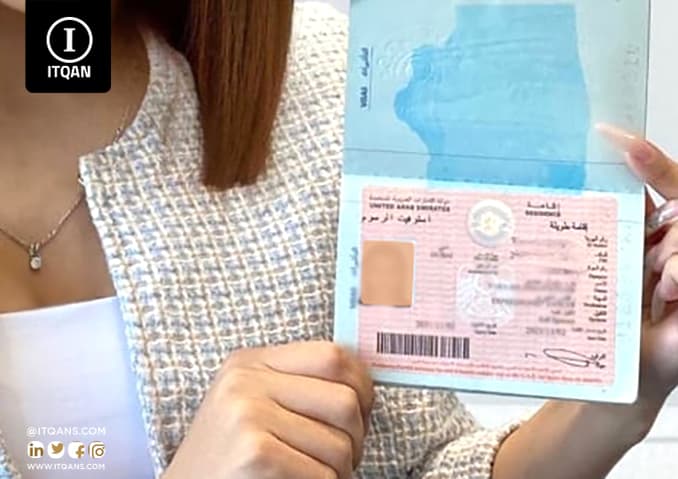Dubai is one of the major centers that attract entrepreneurs and investors from all over the world. Dubai has modern infrastructure and flexible legislation that make it an ideal destination for establishing companies, whether small or large. Procedures for establishing a company in Dubai require following a series of basic procedures that include choosing the appropriate type of company, defining business activities, and obtaining the necessary licenses. Every entrepreneur seeks to achieve sustainable and evolving success in a favorable business environment, and this requires a deep understanding of the legal and administrative procedures in Dubai.
In this article, we will take a comprehensive look at how to establish a company in Dubai , from choosing the right type of company to obtaining the necessary business licenses. We will also discuss potential challenges and opportunities for investors in this global city. By understanding these steps and requirements, anyone who intends to invest in Dubai can better prepare themselves to embark on their entrepreneurial journey in this thriving market.

Procedures for establishing a company in Dubai
جدول المحتوى
ToggleEstablishing a company in Dubai
Establishing a company in Dubai represents a crucial strategic step for investors, given the advanced and flexible economic environment that the city provides. Dubai is one of the most prominent global centers for business and investment, as it enjoys advanced infrastructure and legislative facilities that attract entrepreneurs from various sectors and nationalities.
When investors begin the process of establishing a company in Dubai, they must first choose the appropriate company type, such as a limited liability company or a sole proprietorship, based on the nature of the activity and business requirements. Next, the appropriate location within the Emirate of Dubai is selected, taking into consideration strategic factors such as market access and operational costs.
Among other essential steps, investors must collect and prepare all necessary documents such as articles of incorporation and articles of association of the company, and submit applications to the competent authorities such as the Dubai Economic Development Department (DED) or any other free zone as needed. Next comes the role of the relevant authorities in reviewing and approving the applications, which opens the door to completing final procedures such as obtaining the licenses and licenses necessary to start the business.
Procedures for establishing a company in Dubai
The procedures for establishing a company in Dubai require following a series of basic steps to ensure compliance with local laws and start operating legally and efficiently. Here are the steps for establishing a company in Dubai in general:
- Choosing the company type: The investor must determine the appropriate company type for his business activity, such as a limited liability company (LLC), sole proprietorship, joint stock company, or choose to establish in a free zone.
- Choosing a company name: You must choose a unique and appropriate name for the company, and ensure that it is compatible with local laws and regulations. The availability of proposed names is verified by the Department of Economic Development (DED).
- Determine the location and head office: You must determine the location of the company and the space required for the head office, and ensure that the company address is valid for legal registration.
- Preparing the Memorandum of Association and Articles of Association: Establishing the company requires preparing the Memorandum of Association and Articles of Association, and having them notarized by an accredited notary. The business activities that the company will practice and the terms of its operation must be determined.
- Obtaining a commercial license: You must apply for a commercial license from the Department of Economic Development in Dubai or from the relevant authority in the case of establishment in a free zone. It is necessary to submit a set of required documents and pay the relevant fees.
- Company Registration: After obtaining the trade license, the company must register itself with the Dubai Chamber of Commerce and Industry or other competent authority, as the case may be.
- Opening a bank account: This step is necessary to manage the company’s financial operations. Opening a bank account requires submitting the required documents from the chosen bank.
- Tax and Legal Compliance: The company must comply with all legal and tax controls applicable in Dubai and the United Arab Emirates in general.
Costs of establishing a company in Dubai
The costs of establishing a company in Dubai vary based on several factors such as the type of company, its size, and the geographical location in which you wish to establish it. Here is an overview of the approximate costs of setting up a company in Dubai:
- Government registration fees: These fees include the costs of registering the company with the Department of Economic Development or in a free zone, and vary according to the type of company and activity.
- Legal and consulting services fees: You may need to consult a lawyer or business consultant to help you prepare legal documents and company articles of association, which may incur additional costs.
- Commercial license fees: These fees include the costs of obtaining a commercial license from the Department of Economic Development or the competent authority in the free zone, and may vary depending on the type of activity and the size of the company.
- Rent and office costs: You must rent an office for the company, and costs vary depending on the size of the space required and the location in Dubai.
- Additional Service Charges: You may incur additional costs for services such as car rentals, financial services, or any other ancillary services required by the Company’s operations.
- Tax costs: The company must comply with local taxes and tax laws in Dubai, and costs may vary depending on the tax exemptions available.
Documents required to establish a company in Dubai
To incorporate a company in Dubai , the required documents vary slightly depending on the type of company and the region in which you wish to establish the company. Here is a list of basic documents you may generally need:
- Copy of Passport: A copy of the passport must be provided to all shareholders and directors concerned with the company.
- Personal photographs: The regulator may require recent personal photographs of shareholders and directors.
- An image of the business plan: The business plan includes details about the company’s proposed activity, future expansion plans, and financial projections.
- Company incorporation documents: This includes the Memorandum of Association and Articles of Association of the company.
- Commercial Registration Certificate: If the company is registered in a free zone or special zone, you may need a Commercial Registry Certificate from this region.
- Proof of address: The investor needs to prove the company’s physical address in Dubai, such as a lease contract, electricity fee or water bill.
- Authorizations: It may be necessary to provide authorizations to the persons concerned to represent the company, especially if there are executive directors who do not hold UAE nationality.
- Letters of Authority: If there are agents representing the company in the incorporation proceedings, you may need letters of authority signed by the company.
- Company license: The necessary license for company activity must be obtained from the relevant government entity, such as the Dubai Economic Development Department (DED) or a free zone authority.
Taxes required for companies in Dubai
In Dubai, companies enjoy a favorable tax environment as there are many tax benefits that attract investors. Here’s an overview of the taxes required for businesses in Dubai:
- Income tax: Companies in Dubai are exempt from income tax for a period of up to 50 years, renewable.
Free zones in Dubai enjoy complete exemption from corporate income tax. - Value Added Tax (VAT): Value Added Tax (VAT) in Dubai applies to goods and services at a rate of 5%.
Companies are obliged to register themselves with the Federal Tax Authority (FTA) if their exceptional annual revenues exceed the specified limit. - Sales Tax: There is no sales tax in Dubai, which makes it easier for businesses to make profits without additional costs in this regard.
- Excise taxes: Excise taxes may apply to some special goods such as tobacco and alcoholic beverages, but they do not usually affect companies directly.
- Real estate taxes: Companies must pay a real estate tax on the property they own in Dubai, which varies depending on the value of the property and its location.
At the conclusion of this article, we find that the procedures for establishing a company in Dubai represent a fruitful challenge that deserves investment and good planning. From choosing the right company type, choosing a name, and determining the location, to preparing legal documents and obtaining business licenses, every step requires focus and precision to ensure full compliance with local laws and ease of doing business.
The Dubai region is emerging as a major investment center in the Middle East, making it a preferred destination for those wishing to exploit global business opportunities. Benefiting from the facilities and tax exemptions available in free zones enhances Dubai’s attractiveness as a developed and innovative economic hub.
In conclusion of this article, it can be said that establishing a company in Dubai represents a strategic step that requires good planning and specialized consultation, which ensures a strong start and success of the business in a dynamic and developed economic environment.
The most frequently asked questions about establishing a company in Dubai
What types of companies can be established in Dubai?
Companies such as limited liability company (LLC), sole proprietorship, joint stock company, and other companies can be established in free zones as tax-free companies.
Can foreigners fully own a company in Dubai?
Yes, foreigners can fully own the company in free zones or using partnership agreements with Emirati citizens.
What additional services are available to businesses in Dubai?
Additional services that can be availed in Dubai include government support, advanced infrastructure, and access to the Middle East market.
What other taxes may affect companies in Dubai?
In addition to income tax, a value-added tax (VAT) of 5% applies to some goods and services, and there are excise taxes on some products such as tobacco.

















